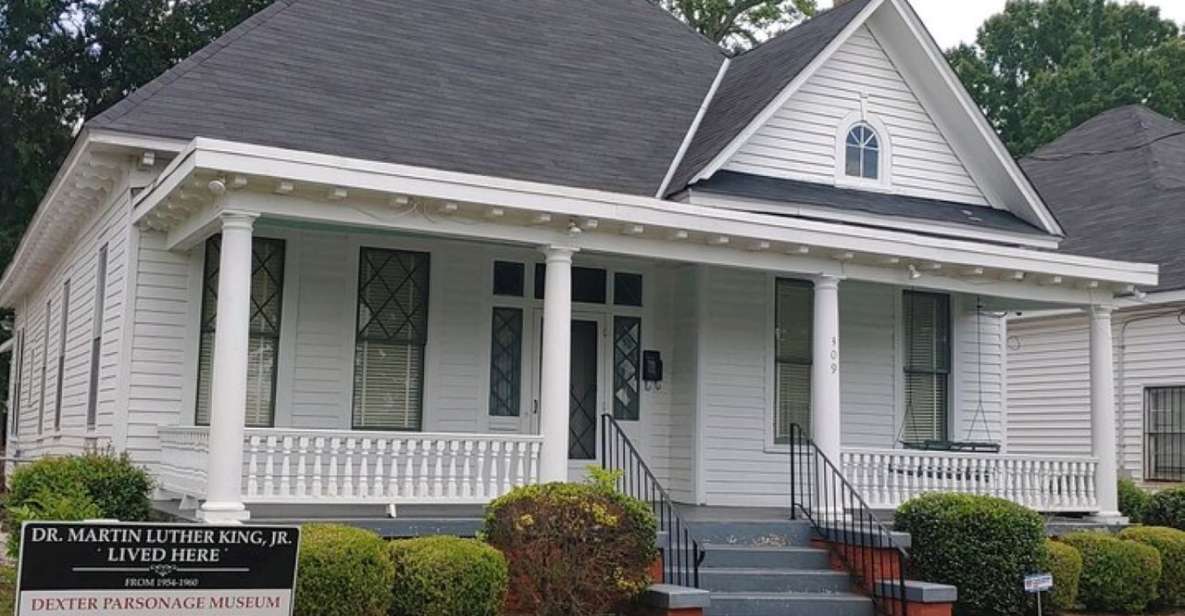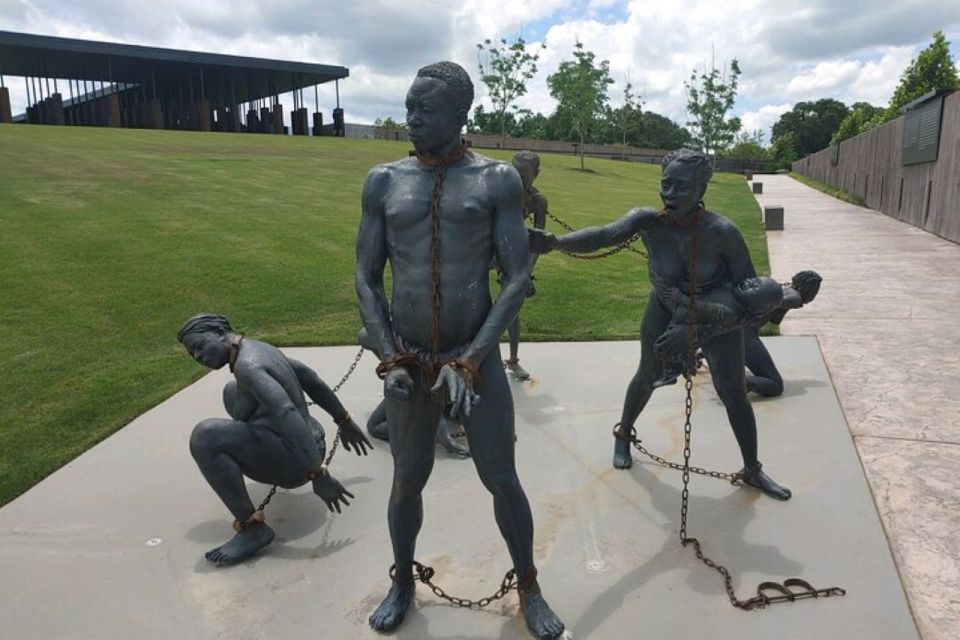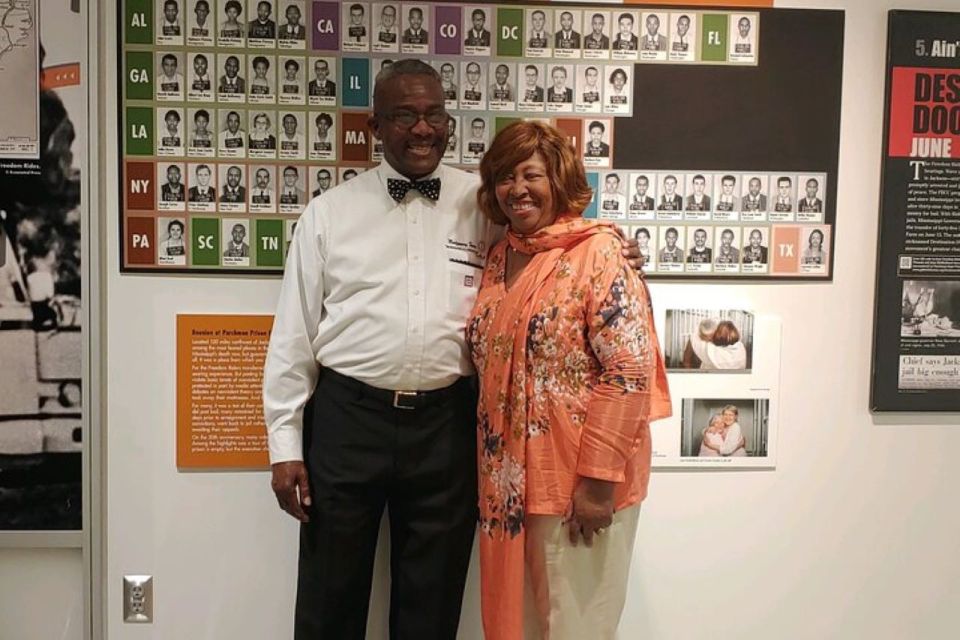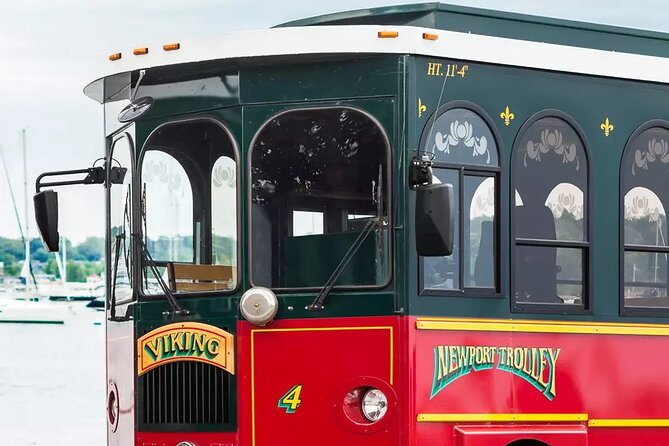As visitors traverse the historic cities of Montgomery, Selma, and Birmingham on a 3-day tour, they find themselves at a crossroads of past struggles and present hopes. Each location holds a unique narrative, intertwined with the civil rights movement’s most defining moments.
From the poignant echoes of sacrifices made on the Edmund Pettus Bridge to the iconic Rosa Parks Museum, and the somber yet empowering aura of the Sixteenth Street Baptist Church, this journey offers a profound insight into the resilient spirit that continues to shape the quest for justice and equality.
Key Points

- Experience civil rights history in Selma, Montgomery, and Birmingham
- Walk in the footsteps of courageous activists and foot soldiers
- Reflect on the sacrifices and triumphs of the civil rights movement
- Visit iconic sites like the Edmund Pettus Bridge and Rosa Parks Museum
Selma: Civil Rights History Exploration

Embark on an eye-opening journey through the heart of civil rights history with a compelling exploration of Selma’s pivotal role in the movement. Explore the Foot Soldier Experience as you walk across the Edmund Pettus Bridge, the site of Bloody Sunday.
Witness firsthand the sacrifices made by activists for equality and reflect on their Journey Reflections. Understand the profound impact of events in Selma on the civil rights movement.
The journey through Selma provides a unique opportunity to grasp the struggles faced by those fighting for justice and equality. It’s a chance to honor the bravery of foot soldiers and activists who paved the way for progress, leaving a lasting legacy that continues to inspire generations to come.
Montgomery: Legacy of Activism

The legacy of activism in Montgomery shines through the historic sites and landmarks that bear witness to the city’s pivotal role in the civil rights movement.
Visitors can explore the past at the Rosa Parks Museum, gaining insight into her courageous stand against segregation.
The Dexter Avenue Baptist Church offers a glimpse into Dr. Martin Luther King Jr.’s leadership, igniting the flame of change.
Montgomery’s streets whisper tales of resilience and determination, reflecting the legacy of key civil rights figures who fought for equality.
The impact of activism reverberates through the city, inviting visitors to reflect on the challenges faced and the triumphs achieved.
Montgomery stands as a testament to the power of legacy reflection and the lasting impact of activism on society.
Birmingham: Tragic Past, Hopeful Future
With a tragic past shadowed by the events of 1963, Birmingham now embraces a hopeful future as a beacon of progress and unity in the ongoing fight for equality. The city has transformed its history into a source of inspiration, paving the way for a brighter tomorrow. Here’s why Birmingham stands out:
-
Resilience: Despite its tragic past, Birmingham has shown remarkable resilience in overcoming adversity and striving for a better future.
-
Community Unity: The city’s hopeful future is built on a foundation of community unity, where people come together to support each other and advocate for equality.
-
Progressive Initiatives: Birmingham is actively engaged in progressive initiatives that aim to address social injustices and promote inclusivity, making it a symbol of hope for the nation’s future.
Edmund Pettus Bridge: Symbol of Struggle
Birmingham’s transformation into a beacon of progress and unity is vividly exemplified by the iconic Edmund Pettus Bridge, a powerful symbol of the civil rights struggle.
This symbolic landmark holds immense historical significance as the site of the brutal confrontation on Bloody Sunday in 1965, where peaceful marchers were met with violence.
The bridge stands as a reminder of the sacrifices made by civil rights activists in the fight for equality. Walking across this bridge allows visitors to connect with the past and gain a deeper understanding of the challenges faced during the civil rights movement.
The Edmund Pettus Bridge serves as a poignant tribute to the resilience and determination of those who fought for justice and equality.
Rosa Parks Museum: Tribute to Courage
Nestled in Montgomery, the Rosa Parks Museum stands as a poignant tribute to courage and resilience in the face of adversity. The museum serves as a reminder of the inspiring legacy left by Rosa Parks, whose act of defiance sparked a movement for equality and justice. Visitors can explore exhibits that vividly depict the challenges faced by Parks and the civil rights movement, offering insight into the struggles and triumphs of the era.
Key Points:
- Tribute: The museum pays homage to Rosa Parks and her pivotal role in the civil rights movement.
- Inspiration: Visitors are inspired by the courage and determination of Parks and other activists.
- Educational: The museum educates on the history of the civil rights movement, encouraging reflection and understanding.
Dexter Avenue Baptist Church: MLK’s Pulpit
Have you ever wondered about the significance of Dexter Avenue Baptist Church as the pulpit where Dr. Martin Luther King Jr. delivered his powerful messages during the civil rights movement? Dexter Avenue Baptist Church holds a pivotal place in MLK’s legacy and the broader civil rights impact. Below is a table showcasing key aspects of MLK’s involvement at Dexter Avenue Baptist Church:
| Dexter Avenue Baptist Church | MLK’s Involvement |
|---|---|
| Location | Montgomery, Alabama |
| Role | Pulpit for MLK’s speeches |
| Significance | Hub for civil rights activism |
| Legacy | MLK’s leadership and impact |
| Impact | Symbol of hope and equality |
Dexter Avenue Baptist Church stands as a symbol of MLK’s dedication to justice and equality, reflecting his enduring legacy within the civil rights movement.
Sixteenth Street Baptist Church: Remembering Sacrifice
Remembering the sacrifice made at Sixteenth Street Baptist Church is a poignant tribute to the lives lost in the struggle for civil rights. The church stands as a symbol of resilience and remembrance, honoring the victims of a tragic event that shook the nation. Here are three important aspects to consider when reflecting on the significance of the Sixteenth Street Baptist Church:
-
Remembering Victims: Paying respects to the four young girls who tragically lost their lives in the 1963 church bombing.
-
Community Healing: Understanding the impact of the events on the civil rights movement and the healing process of the community.
-
Historical Significance: Recognizing Birmingham’s pivotal role in the fight for equality and justice, and the importance of learning from the past to shape a better future.
Common questions
What Are Some Recommended Local Restaurants or Eateries to Try During the Tour in Montgomery, Selma, and Birmingham?
For a taste of local flavors and culinary delights on the tour in Montgomery, Selma, and Birmingham, visitors can try renowned spots like Martha’s Place, Dreamland BBQ, and Highlands Bar and Grill.
Are There Any Specific Safety Precautions or Tips to Keep in Mind While Exploring the Civil Rights Sites in These Cities?
When exploring the civil rights sites in Montgomery, Selma, and Birmingham, visitors should prioritize safety precautions like staying with the group, respecting historical significance, and following any guidelines provided by tour guides for a meaningful experience.
Can Visitors Expect Any Special Events or Commemorations Related to the Civil Rights Movement During Their Tour Dates?
Visitors on the 3-day Civil Rights Tour can anticipate special commemorations at civil rights landmarks. Historical significance of tour dates may align with events. The experience offers a vivid exploration of the movement’s impact.
Are There Any Opportunities for Visitors to Interact With Local Community Members or Civil Rights Activists During the Tour?
Visitors on Civil Rights history tours have opportunities for engagement with local community members and civil rights activists. They can interact with those who experienced the movement firsthand, gaining deeper insights into the struggles and triumphs.
What Transportation Options Are Available for Getting Between the Different Cities on the 3-Day Tour?
For transportation between cities on the 3-day tour, visitors have options like public transportation, car rentals, and shuttle services. Private tours offer flexibility and convenience. Select the mode that suits your travel preferences best.
Not for you? Here's more of our most recent tour reviews happening neaby
Sum Up
Embark on this 3-day tour of Montgomery, Selma, and Birmingham to learn about the rich history of the civil rights movement. From iconic landmarks like the Edmund Pettus Bridge to powerful memorials like the Rosa Parks Museum, each stop offers a poignant reminder of the sacrifices made for equality.
With a live tour guide providing insights, this journey is a profound exploration of the past and a reflection on the ongoing pursuit of justice and equality. Join us on this enlightening experience today.






